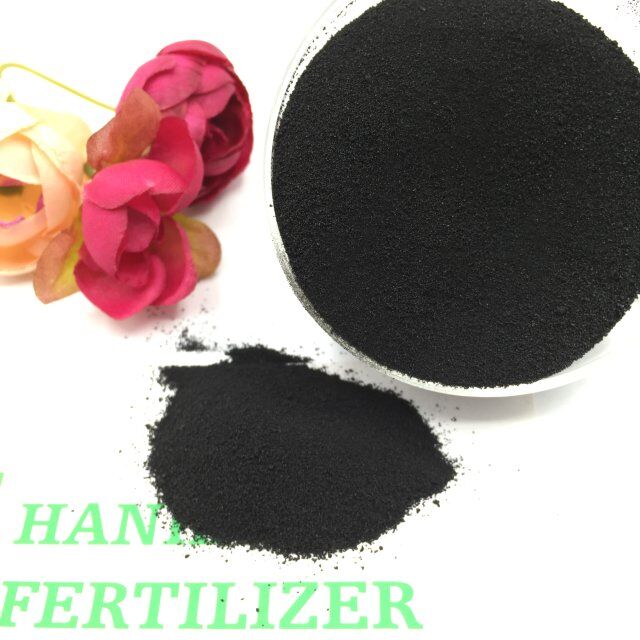
Nov . 15, 2024 22:48 Back to list
humic acid powder fertilizer
The Benefits and Uses of Humic Acid Powder Fertilizer
In the realm of modern agriculture, the quest for sustainable and efficient methods of crop production has led to the growing popularity of organic fertilizers. Among these, humic acid powder fertilizer stands out as a powerful natural soil amendment that offers numerous benefits for both soil health and plant growth.
What is Humic Acid?
Humic acid is a complex organic substance that forms from the decomposition of organic matter, particularly plant materials. It is a major component of humus, which contributes to soil fertility and structure. Humic acid is known for its dark color and viscous consistency, often derived from natural sources such as peat, lignite, or composted organic matter. In its powdered form, it can be easily applied to various types of soil and crops.
Nutritional Benefits
Humic acid is prized for its ability to enhance nutrient availability in the soil. It acts as a chelating agent, binding essential micronutrients (such as iron, manganese, and zinc) and making them more accessible to plants. This is particularly important in soils with high pH levels, where these nutrients may otherwise be locked away in insoluble forms. By improving nutrient uptake, humic acid fosters healthier plant growth and can lead to higher crop yields.
Moreover, humic acid plays a crucial role in increasing the soil's cation exchange capacity (CEC). CEC is the ability of soil to hold onto essential nutrients, preventing them from being leached away by rainfall or irrigation. Higher CEC levels mean that plants can access a larger pool of nutrients over time, creating a more stable growing environment.
Soil Structure Enhancement
Beyond its nutritional benefits, humic acid powder contributes significantly to improving soil structure. It helps to aggregate soil particles, which enhances porosity and aeration. Well-structured soil allows for better root penetration and access to water, fostering stronger plants. Additionally, it improves moisture retention, which is particularly beneficial in arid regions or during dry spells.
humic acid powder fertilizer

This ability to retain water and nutrients translates into less frequent irrigation and reduced fertilizer application, ultimately leading to lower production costs for farmers. Furthermore, a well-aerated soil promotes beneficial microbial activity, which is essential for a healthy ecosystem. The presence of beneficial microorganisms helps to decompose organic matter, recycle nutrients, and suppress pests and diseases.
Environmental Benefits
The environmental benefits of using humic acid powder fertilizer cannot be understated. As an organic amendment, it reduces the need for synthetic fertilizers, which are often associated with soil degradation, water pollution, and adverse effects on biodiversity. By improving the natural processes within the soil, humic acid supports sustainable agriculture practices that align with environmental conservation goals.
Additionally, humic acid contributes to carbon sequestration. As it improves the organic content in the soil, it helps to store carbon, thereby mitigating climate change effects. Healthy, carbon-rich soils are crucial for sustainable agricultural practices, as they enhance resilience to extreme weather events and improve food security.
Application and Usage
Humic acid powder can be applied to soils in various forms, including granules, liquids, or as part of a blended fertilizer. The application rates can vary depending on soil composition and the type of crops being cultivated. It is typically recommended to incorporate humic acid into the soil during planting or apply it as a top dressing during the growing season.
Farmers may conduct soil tests to determine the nutrient and organic matter needs of their fields before applying humic acid. This ensures that the application is tailored to the specific requirements of the crops and soil type, maximizing the benefits.
Conclusion
Humic acid powder fertilizer presents an array of benefits that enhance soil quality, promote plant health, and contribute to sustainable agricultural practices. Its role in improving nutrient availability and soil structure makes it an invaluable asset for farmers looking to optimize their crop production while minimizing environmental impact. As the agricultural sector continues to evolve, humic acid powder is set to play a pivotal role in fostering a greener and more sustainable future for farming.
-
Premium Organic Manure Compost for Eco Gardens
NewsAug.01,2025
-
Organic 10-10-10 Fertilizer | Balanced Plant Nutrients
NewsJul.31,2025
-
Premium Amino Acid Fertilizer | Rapid Plant Growth Booster
NewsJul.31,2025
-
10 10 10 Fertilizer Organic—Balanced NPK for All Plants
NewsJul.30,2025
-
Premium 10 10 10 Fertilizer Organic for Balanced Plant Growth
NewsJul.29,2025
-
Premium 10 10 10 Fertilizer Organic for Balanced Plant Growth
NewsJul.29,2025
